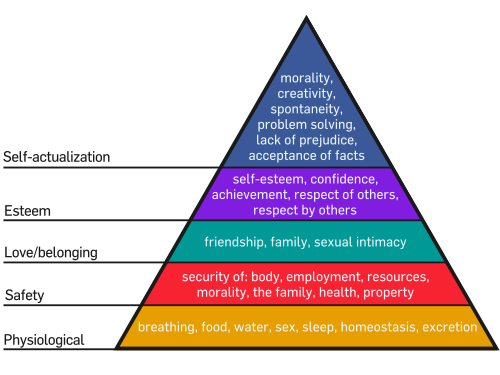
In this post, I’ll be looking at how losing access to the web could be analogous to losing access to other resources that we are dependant on. In this respect, I’ll be looking at the web in three categories: a luxury, a convenience and a basic need.
Understanding this needs the study of people and society. A good place to start is with Anthropology, which, in her book What Do Anthropologist Do? Veronica Strang, is defined as “a social science that involves the study of human groups and their behaviour”. It seems perfectly suited for understanding the relationship between groups of of people and the web.

The psychologist Abraham Maslow devised a way of categorising psychological needs as a hierarchy. From the most basic needs to the needs for self-actualisation, the web has changed every aspect for modern society – online dating, employment in the web, getting information about health through the web, online communities and friendships, the web as a way of expressing creativity etc. Anthropology is increasingly relied on to consider these issues.
For some, the web is merely acts as an alternative to the real world – not really forming part of daily life, and more for the occasional streaming of a movie for entertainment. For these people, the web is a seldom-used luxury. Some people use the web more often, perhaps for online shopping or communicating with friends that they know in real life. The web is a convenience for these people. Finally, there are those who depend on the web for friendships, dating, and even getting food if going to the shops is not a viable option. For these people, the web is a basic need.
Losing the web will affect the latter the most, whose basic needs are fulfilled by access to the web. Meanwhile, those who use the web as a luxury may not find themselves directly affected. Could there be a greater dependence on the web in the future for these individuals?
In the next blog post, I will consider what the indirect effects of a web blackout may be for those who use the web as a convenience or a luxury.